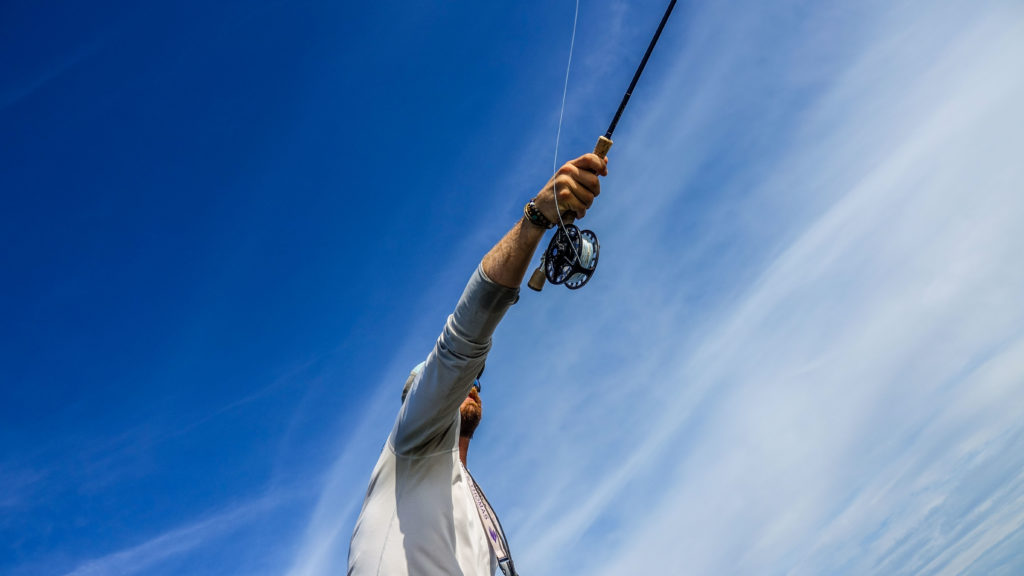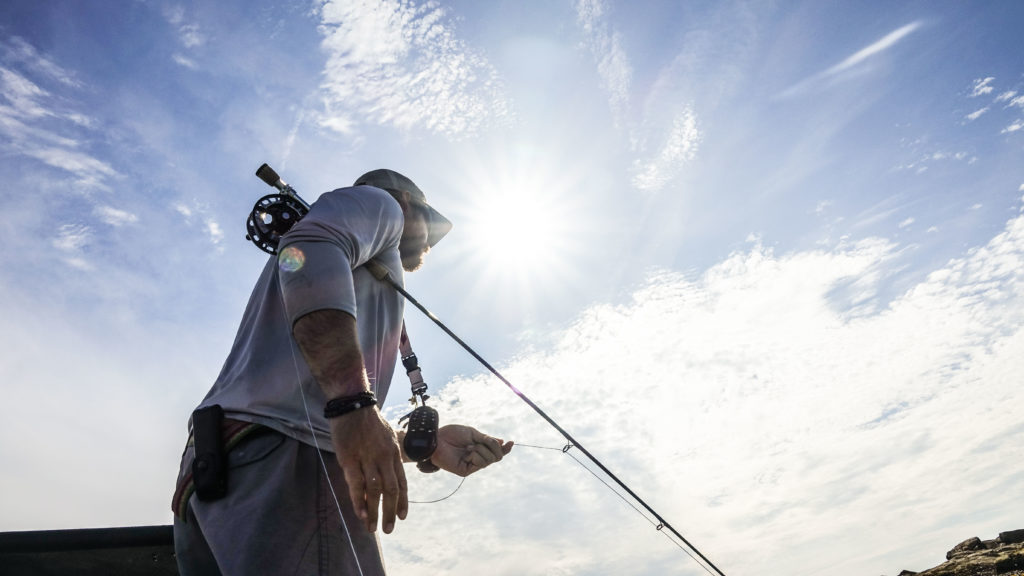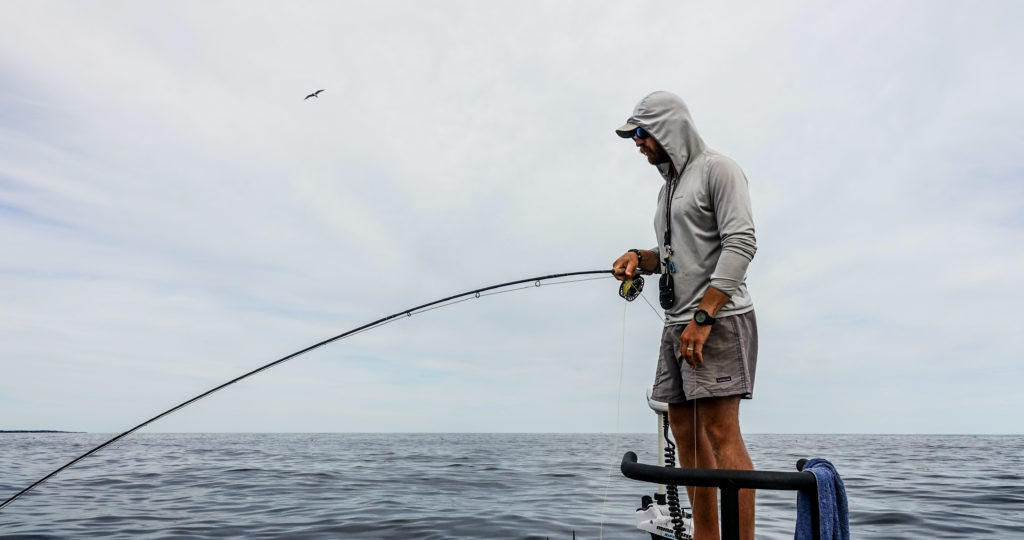
No matter if you’re wading through mountain creeks searching for rising trout sipping bugs or stalking the Pacific Northwest’s rocky beaches on the hunt for slashing salmon, it’s human nature to key into what we can see above the water’s surface. However, any angler worth their salt knows that it is far more important to understand the dynamics beneath the surface, out of sight.
Strangely, the same is true in the halls of Congress. While we tend to focus on what we see on cable news or on a politician’s twitter feed, the real work of Congress is done behind the scenes and often goes unreported and unpublicized. As a result, to truly understand the work our elected officials are doing, it is paramount to explore what is happening beneath the surface, out of the public eye.
It is only through this exploration that anglers can appreciate the work done by several key senators – Washington’s Maria Cantwell, Massachusetts’s Ed Markey, and Connecticut’s Richard Blumenthal – to defang the Modern Fish Act and remove the provisions that would have done irrevocable damage to our oceans and fish stocks. Yes, the Modern Fish Act is now law thanks to a few strokes of Trump’s pen on New Year’s Eve, but those cheering on the sidelines were celebrating a mostly hollow victory.

To comprehend the importance of these senators’ successful efforts to remove the bill’s most harmful provisions, it helps to understand the Orwellian nature of the Modern Fish Act. Despite the promise of the title, the Modern Fish Act was anything but modern. Once you get past the name and dig into the bill’s content, it’s clear the title was an attempt to pull the wool over the public’s eyes. It was an unfortunate ploy but a necessary one considering a more accurate title like the “Empty Oceans Act” would have been about as palatable as a rotten salmon.
The regressive nature of what was the Modern Fish Act is a stark contrast to the great strides America has made over the last four decades managing our marine fisheries. This progress is the direct result of the Magnuson-Stevens Act, a groundbreaking fisheries law enacted in 1976 that, to this day, remains the primary law governing marine fisheries in U.S. federal waters as well as the international gold standard for effective fisheries management.
By taking a science-based approach and instituting requirements for responsible harvesting, the Magnuson-Stevens Act has been able to enhance the long-term biological and economic sustainability of America’s marine fisheries. In fact, this landmark fisheries law is responsible for rebuilding 45 fish stocks, revitalizing commercial fishing communities, and enhancing saltwater recreational fishing opportunities for all Americans.
Last Congress we had the opportunity to build upon the progress we have made over the last four decades by reauthorizing the Magnuson-Stevens Act. Congressional leaders could have doubled-down on their commitment to science-based management. They could have strengthened requirements that prevent overfishing. They could have implemented policies that would help rebuild decimated fish stocks. And they could have created programs that ensure the protection of vital marine habitat in areas like the Chesapeake Bay. Instead, many in Congress took a radically different approach by championing a bill that tried to resurrect the failed policies of our past.

Throughout its history, the reauthorization of Magnuson has always been a bipartisan effort with a shared goal: improving the sustainability of our marine fisheries. Regrettably, the Modern Fish Act was a radical departure from this rich tradition as it was a largely partisan effort that sought to undermine Magnuson by implementing policies that would do things like erode Magnuson’s reliance on “best available science” and curb the development of innovative management techniques. Fortunately, thanks to the leadership of Senator Cantwell and other fish advocates in the Senate, these dangerous provisions were all removed from the bill that eventually landed on the president’s desk.
Those strokes of Trump’s pen marked the end of a bitter but ultimately successful fight to prevent the Modern Fish Act from undoing the progress we have made over the last forty years. And now with the Modern Fish Act behind us and a new Congress in place, we are hopeful for proposals that move the ball forward on sustainable fisheries management and strengthen requirements that prevent overfishing and rebuild decimated fish stocks.
Doing so won’t be easy, as the champions of the Modern Fish Act will no doubt fight hard to achieve what they could not last Congress, but hopefully they recognize that leaders like Senator Cantwell want to move forward, not backward, in our ability to manage fishing sustainably. As anglers and lovers of these fisheries, we must seize this moment and unite to create a better future for our oceans and fish.






Is this a fucking joke? Jane Lubchenkos EDF catch share experiment efficiently gutted the industry and decimated the stocks at the same time. Who wrote this?? I could have made some rhetoric up while sitting on the shitter this morning too, but the easy sell is a slippery slope…part of the reason the ‘any conservation is good conservation’ mentality was allowed to destroy the commercial and recreational fisheries in the northeast in the last ten years. Today’s management scheme has an uncanny ability to fuck things up, and anyone who thinks putting the blinders on and supporting any conservative measure because it looks good on paper is making a huge mistake…much like anyone who thinks this article is worth the paper it was made up on.
What’s your alternative?
we have to get back to using effort as a management tool…allowing boats a ‘yearly’ quota allows them to target fish when they are at their most vulnerable. Use the size and horsepower of a vessel to control its proximity to land; bring back mandatory spawning season closures (which have all but been forgotten in the Northeast); use daily limits for all vessels to control the offshore fleet inshore;
We were close to finding a balance in the 2002-2010 period…it wasn’t perfect but commercial and rec guys were fishing, catching fish and the population of key species did seem to be rebounding. Market value was high; infrastructure was balanced; and all stakeholders (not just commercial interests) had a piece of the pie. We are almost ten years into catch shares…they told us the most important species, cod, would be completely rebuilt by 2014. 2018 was the worst year they’ve seen since the 60’s. That’s after losing a huge percentage of the fleet and with the rest of the fleet basically tied up. At some point somebody with some authority is going to have to admit that ‘science-based’ management (ie numbers on paper most of which are projections) isn’t getting us where we want to be.
Well written from someone that has a clear grasp on policy and procedure! “Bi-partisan” should be the benchmark from which all good law should come. The Modern Fish Act was a wolf in sheep’s clothing and thankfully, Senators and Congressfolk feel invested enough to take the bad stuff out and start a conversation worthy of support from all stakeholders involved. On the west coast, MSA has brought us access to MORE fish and MORE reef just this year alone! Expanded opportunity is a win-win for all!